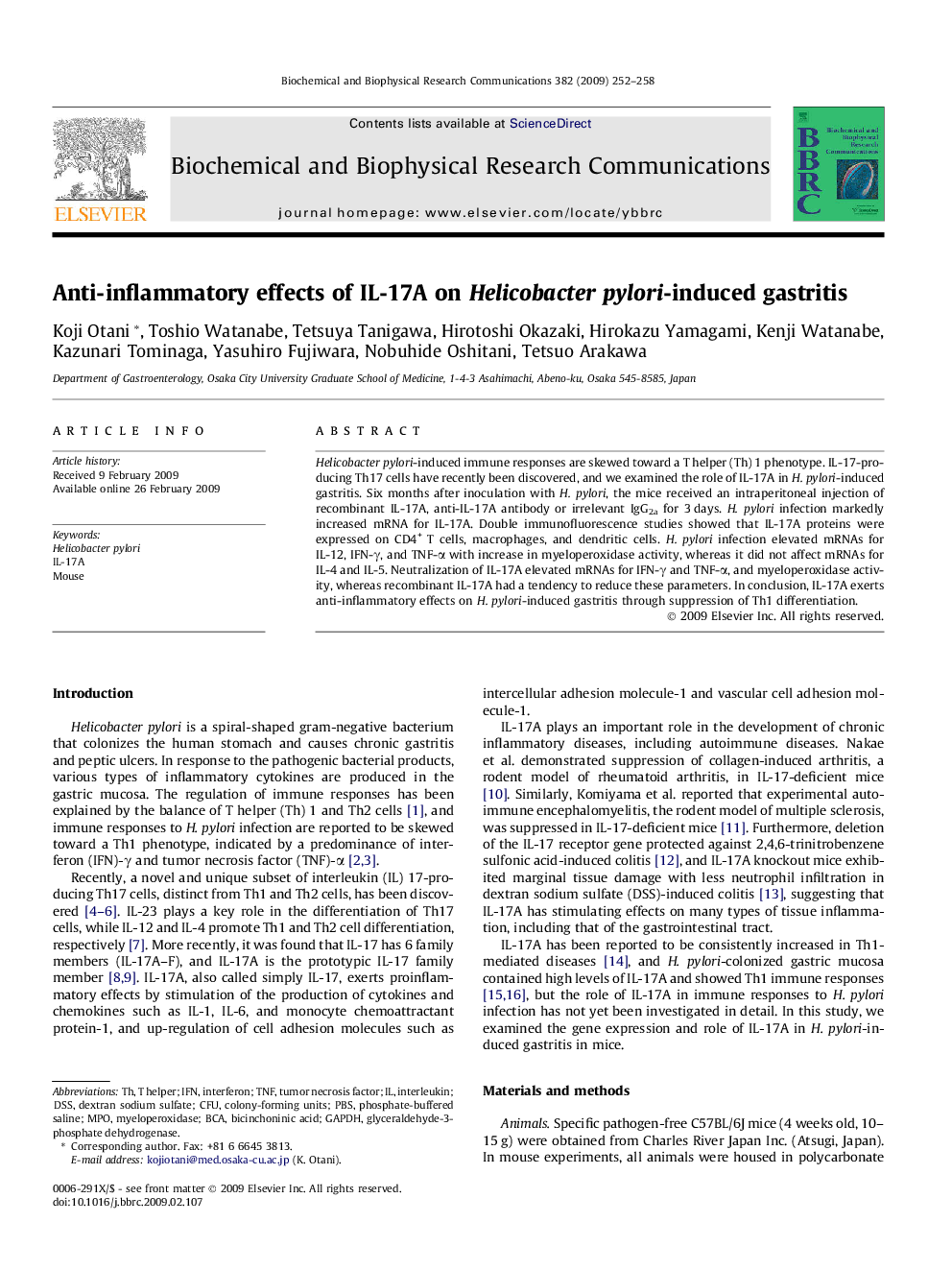| Article ID | Journal | Published Year | Pages | File Type |
|---|---|---|---|---|
| 10766157 | Biochemical and Biophysical Research Communications | 2009 | 7 Pages |
Abstract
Helicobacter pylori-induced immune responses are skewed toward a T helper (Th) 1 phenotype. IL-17-producing Th17 cells have recently been discovered, and we examined the role of IL-17A in H. pylori-induced gastritis. Six months after inoculation with H. pylori, the mice received an intraperitoneal injection of recombinant IL-17A, anti-IL-17A antibody or irrelevant IgG2a for 3 days. H. pylori infection markedly increased mRNA for IL-17A. Double immunofluorescence studies showed that IL-17A proteins were expressed on CD4+ T cells, macrophages, and dendritic cells. H. pylori infection elevated mRNAs for IL-12, IFN-γ, and TNF-α with increase in myeloperoxidase activity, whereas it did not affect mRNAs for IL-4 and IL-5. Neutralization of IL-17A elevated mRNAs for IFN-γ and TNF-α, and myeloperoxidase activity, whereas recombinant IL-17A had a tendency to reduce these parameters. In conclusion, IL-17A exerts anti-inflammatory effects on H. pylori-induced gastritis through suppression of Th1 differentiation.
Keywords
Related Topics
Life Sciences
Biochemistry, Genetics and Molecular Biology
Biochemistry
Authors
Koji Otani, Toshio Watanabe, Tetsuya Tanigawa, Hirotoshi Okazaki, Hirokazu Yamagami, Kenji Watanabe, Kazunari Tominaga, Yasuhiro Fujiwara, Nobuhide Oshitani, Tetsuo Arakawa,
